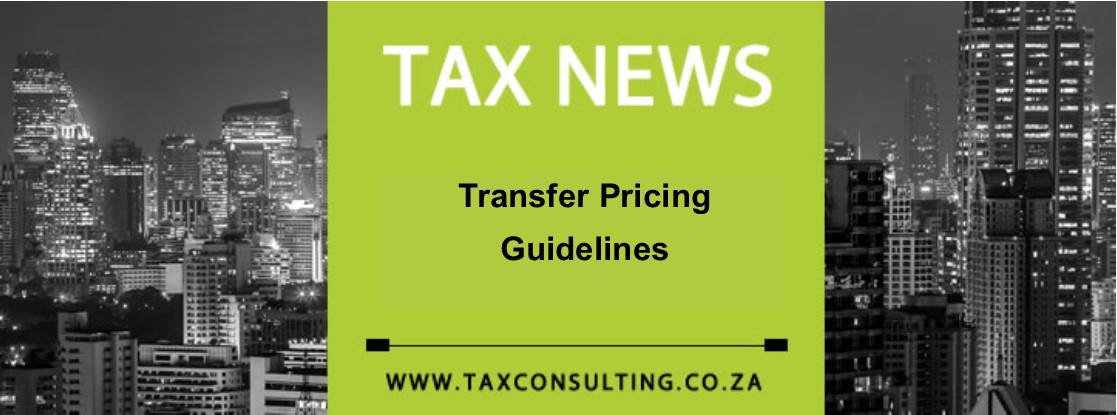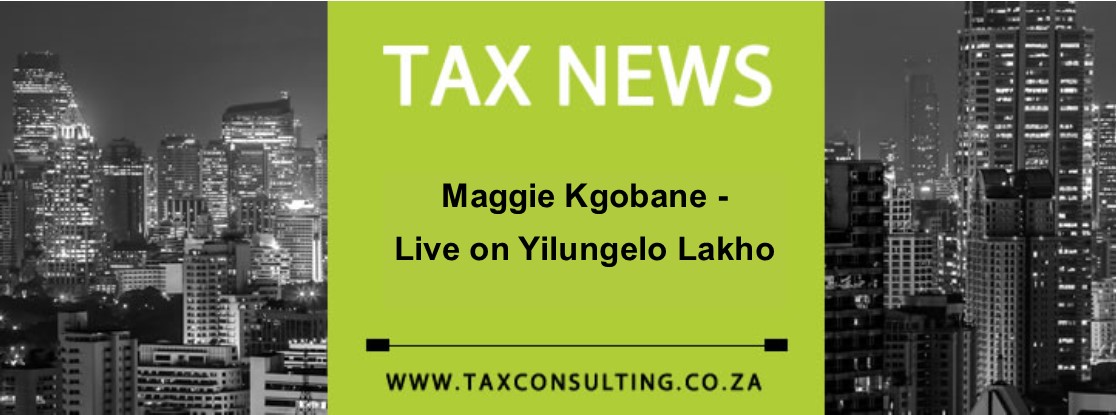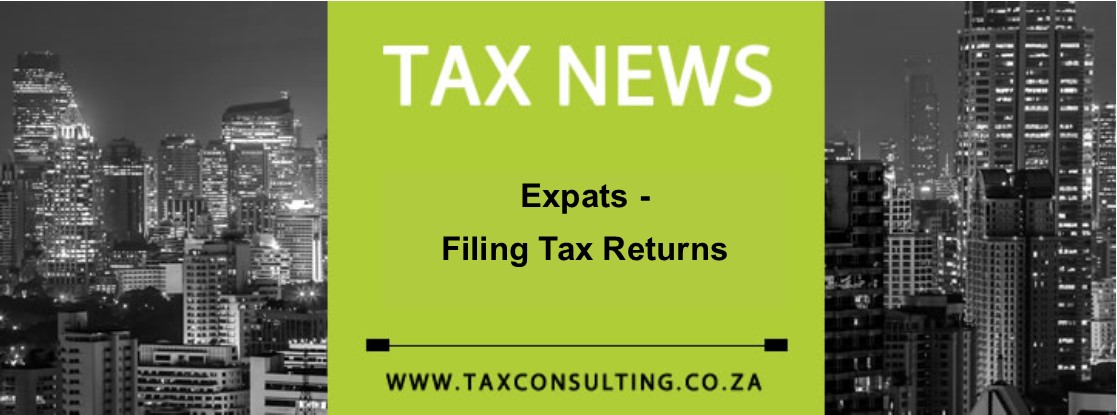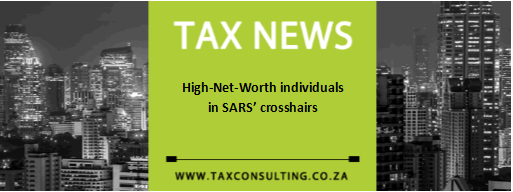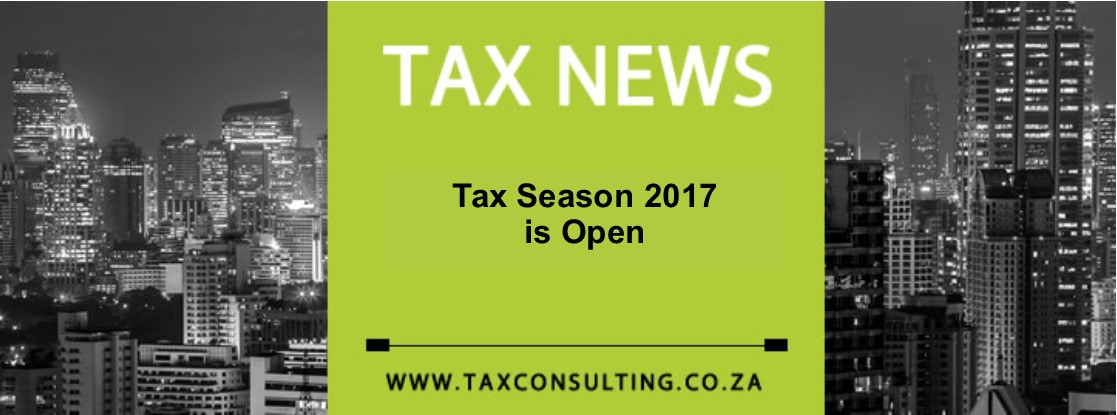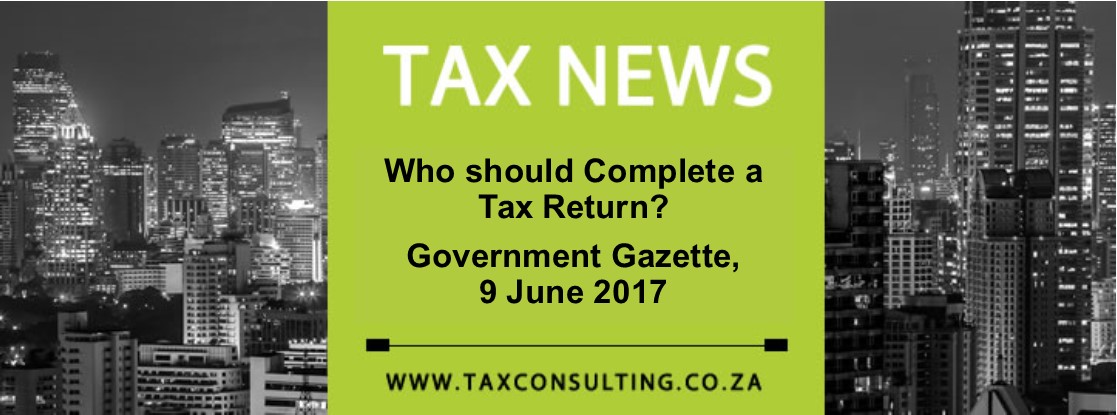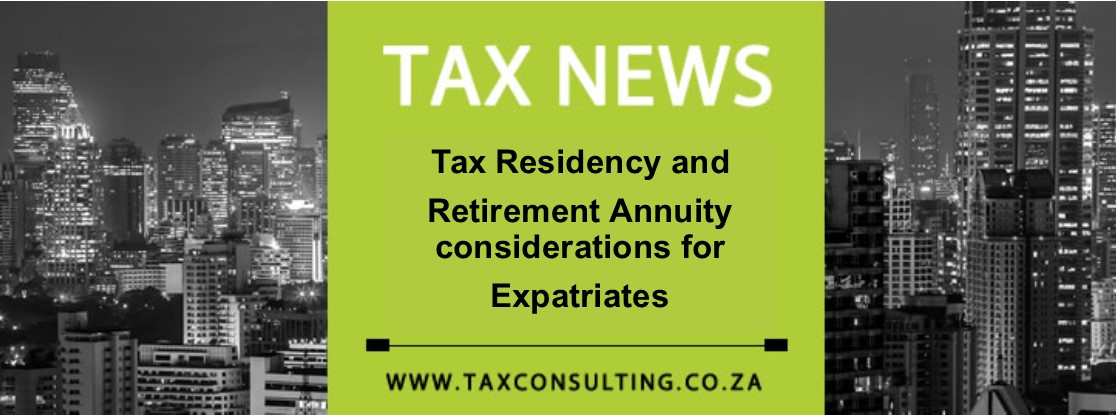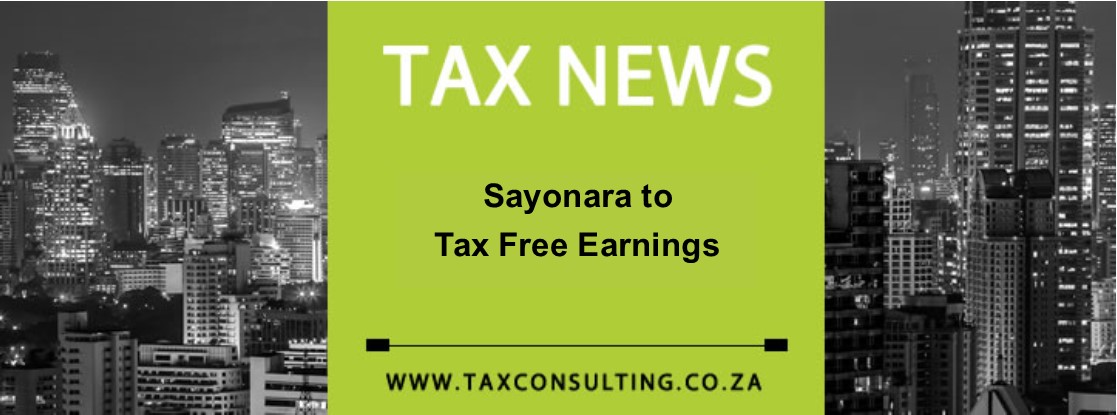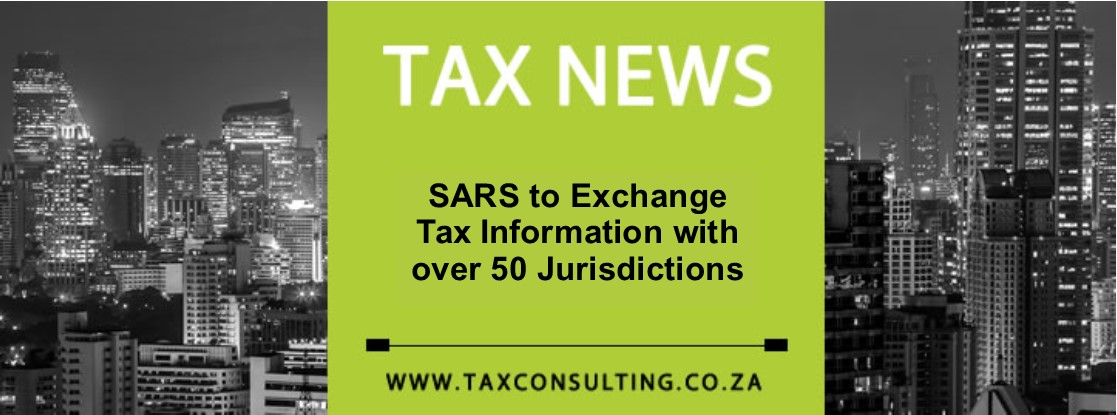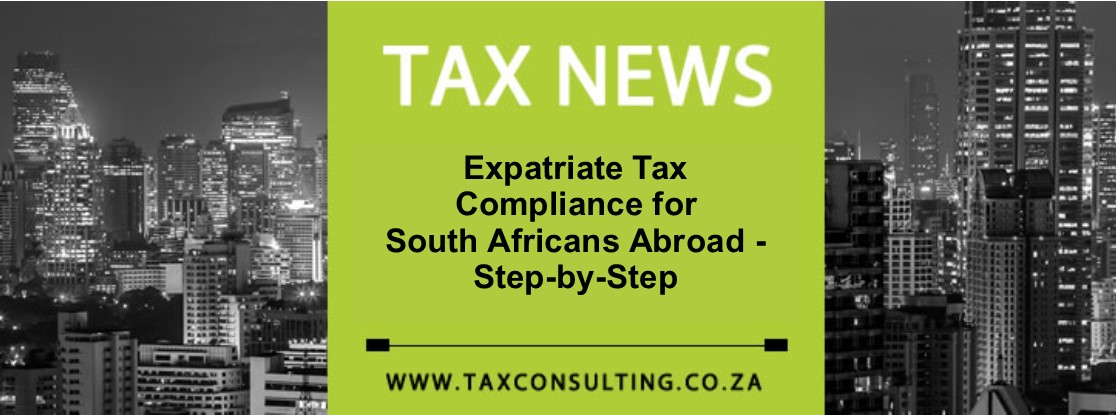EXPATRIATE TAX COMPLIANCE FOR SOUTH AFRICANS ABROAD
STEP-BY-STEP
We have received numerous requests from South Africans working abroad for a step-by-step explanation on what should be done to ensure they are fully tax compliant and optimally planned, especially with the pending tax law change. Please note the below is specifically written for South African expatriates abroad.
Our steps are –
- Get SARS diagnostic on compliance history and tax status.
- Correct any outstanding returns, zero returns or incorrect tax filings.
- Where you have left South African in the past 3 to 10 years with a permanent intention (intention of not coming back), you should seriously consider financial emigration through the Reserve Bank.
- Where you have left South African longer than 10 years ago and / or especially where you have no bank account or tax number in South Africa, getting your non-residency status legally confirmed may be a better and cheaper option.
- Where you have not left permanently, make sure you have disclosed world-wide income and capital gains, and also claimed the 183-and-60-day exemption correctly.
- The new proposed policy change is well lobbied so, we recommend joining such a group to strengthen the cause as there is a good case to make for a less penal law change. An example hereof the “South African Expats Tax Petition Group” on Facebook.
- Do not have knee-jerk reactions, i.e. wait for the law change at least in draft format, but from a position of compliance. This will in all probability only apply 01 March 2018 forward and there will be plenty of planning opportunities to pay less tax. We do not foresee anybody paying 45% tax with proper planning.
We note below some more in-depth information for those who are interested –
SARS Status Update (Tax Diagnostic)
We always recommend, as the very first step, for new clients to have a SARS status update done. Call this a tax diagnostic, so we move from tax speculation to your personal tax reality.
One cannot even consider whether there are any risks or your future planning options, where you do not know your tax position, according to SARS records. Where correctly done, this process creates no risk of a SARS audit or opening a can of worms.
Different tax practitioners approach this differently, but we have about 18 points we specifically want to verify. The more obvious ones are whether you have any returns or money outstanding, whether you have a local of foreign address, where the foreign employment income was disclosed, whether you have simply done zero tax returns. This gets more complex as SARS e-filing portal is a very powerful tool, which contains very specific information, or the lack thereof, is often the start to a SARS audit.
Based on our experience, most taxpayers believe everything is completely up to date, and only around 25% of the time everything is indeed all in order.
I Have Submitted Zero Returns
There is a very common misconception that where you are a South African abroad you could simply submit zero tax returns. Where you have simply left to work abroad, this is not only incorrect but also an offense under tax law.
The only case where you legally can submit zero tax returns are where (a) you are verifiable as a non-resident for South African tax purposes, and (b) you have no South African source income.
In all other cases you, need to make complete and correct returns to SARS, and for South African tax residents that means disclosing your world-wide income and capital gains.
If I Disclose My Income Correctly, Does This Mean I Will Need To Pay Tax On Offshore Income
We would like to assess your situation first, but the quick answer is “no”. Whilst you must disclose your employment income, such employment income is exempt where you have met the section 10(1)(o)(ii) exemption requirements. This means you disclose fully but do not need to pay taxes.
But I have a Tax Clearance?
Tax clearances are simply issued to say you have no returns or money outstanding. It does not verify compliance in any way or prohibit a SARS audit.
Have Been Audited, Therefore I Am Complaint
A SARS verification exercise is often confused with an audit. Simply submitting supporting documents does not count as an audit. Also, SARS normally only conducts limited audits, i.e. on a specific technical matter. However, where SARS has legally audited you on a specific item, they are legally prohibited from auditing you again, except where there is, for example, fraud or misrepresentation.
My Accountant Has Been Doing My Returns
There are excellent tax practitioners in the market and on many we simply, and always, have to truthfully acknowledge, that we cannot do better work. Unfortunately, there are many exceptions and even where you have paid for a big brand, there are no guarantees.
We had a case a couple of weeks ago where the taxpayer was adamant the accountant completed returns correctly and that the foreign employment income was correctly disclosed. He was pretty sure, having forked out just over R5,000 per year for the tax service. When we investigated, there was no claim in the tax assessment. We then further delved into the tax returns done and found that zero’s were declared! Thus, R5,000 per year for completing zero’s and filing the tax return incorrectly. This just emphasizes again, you cannot trust blindly and have to always ask the correct questions to not be misled.
How Will SARS Know
Everyone is reported under CRS or common reporting standards. Where you have a bank account, you are reported automatically and your South African passport or address means SARS is informed.
Employment is Critical (Currently)
The section 10(1)(o)(ii) exemption test only works for employment income and which is earned physically outside South Africa. It is therefore critical that you have an employment contract and not a self-employed or independent arrangement. If this has never been asked of you before, the chances are very good your tax return was done incorrectly in the past.
Importance of Passport copies
You can only evidence your absence from South Africa with passport copies. This must be certified. We recommend you make regular copies and scan them, in case your passport gets stolen. Getting for example airport emigration control records does not count. The only exception we have ever seen is for pilots and airline crew, as well as seafarers, where alternative logs are accepted. If this has never been asked of you before, the chances are very good your tax return was done incorrectly in the past.
[button url=”mailto:contact@taxconsulting.co.za?subject=Urgent Client Contact Request – www.taxconsulting.co.za (Step-by-Step Expats)” target=”” size=”small” style=”black” icon=”” popup=”” title=””]contact@taxconsulting.co.za[/button]
![2025-logo-[Recovered] Tax Consulting South Africa](https://www.taxconsulting.co.za/wp-content/uploads/2025/01/2025-logo-Recovered.png)
